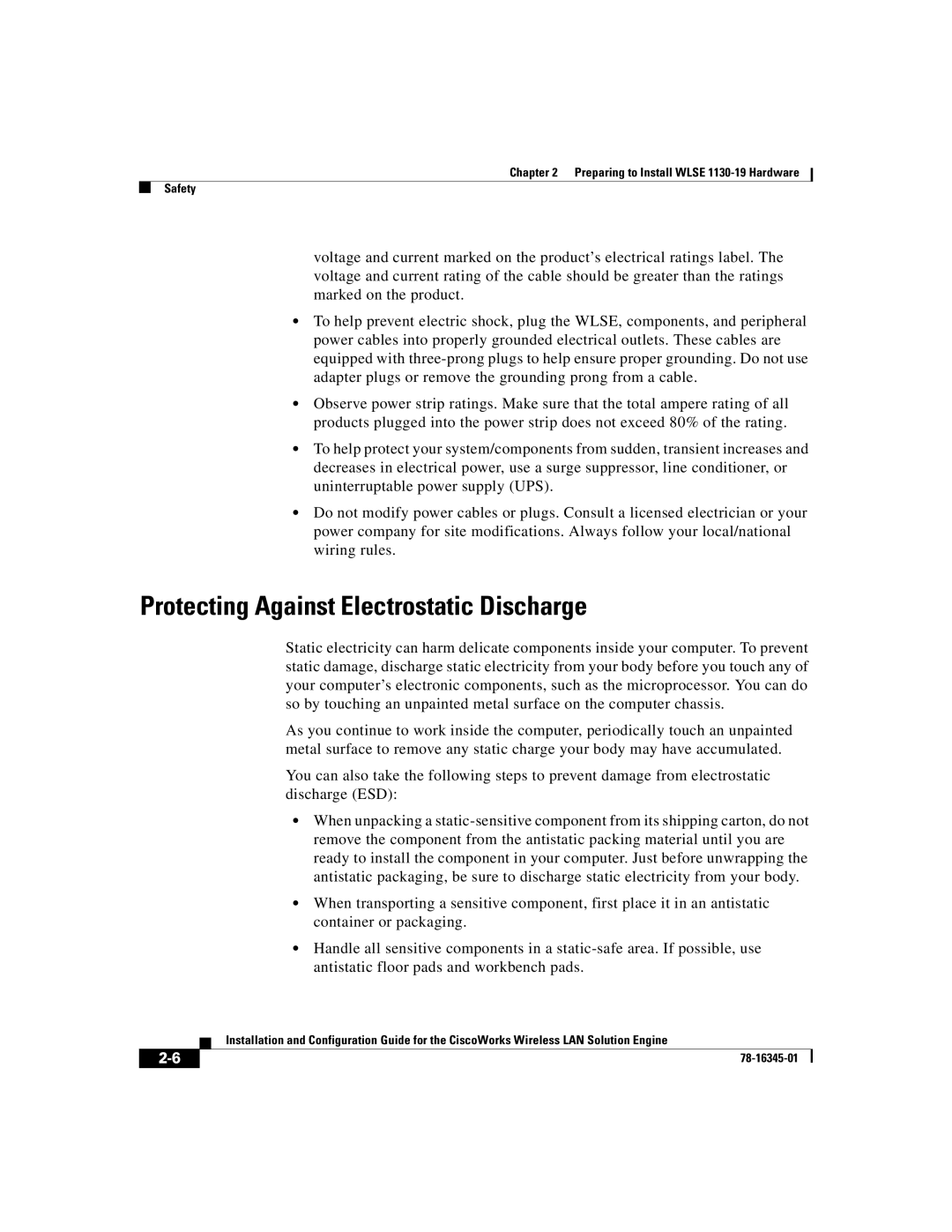
Chapter 2 Preparing to Install WLSE 1130-19 Hardware
Safety
voltage and current marked on the product’s electrical ratings label. The voltage and current rating of the cable should be greater than the ratings marked on the product.
•To help prevent electric shock, plug the WLSE, components, and peripheral power cables into properly grounded electrical outlets. These cables are equipped with
•Observe power strip ratings. Make sure that the total ampere rating of all products plugged into the power strip does not exceed 80% of the rating.
•To help protect your system/components from sudden, transient increases and decreases in electrical power, use a surge suppressor, line conditioner, or uninterruptable power supply (UPS).
•Do not modify power cables or plugs. Consult a licensed electrician or your power company for site modifications. Always follow your local/national wiring rules.
Protecting Against Electrostatic Discharge
Static electricity can harm delicate components inside your computer. To prevent static damage, discharge static electricity from your body before you touch any of your computer’s electronic components, such as the microprocessor. You can do so by touching an unpainted metal surface on the computer chassis.
As you continue to work inside the computer, periodically touch an unpainted metal surface to remove any static charge your body may have accumulated.
You can also take the following steps to prevent damage from electrostatic discharge (ESD):
•When unpacking a
•When transporting a sensitive component, first place it in an antistatic container or packaging.
•Handle all sensitive components in a
| Installation and Configuration Guide for the CiscoWorks Wireless LAN Solution Engine |
